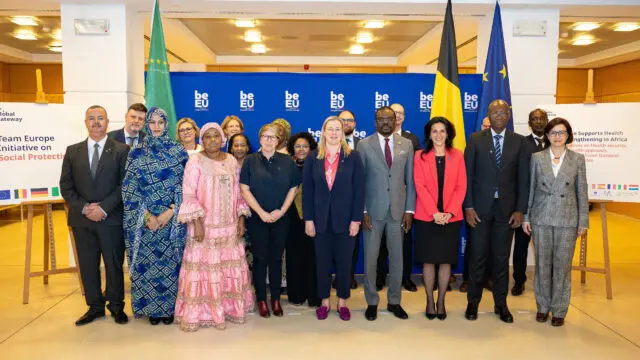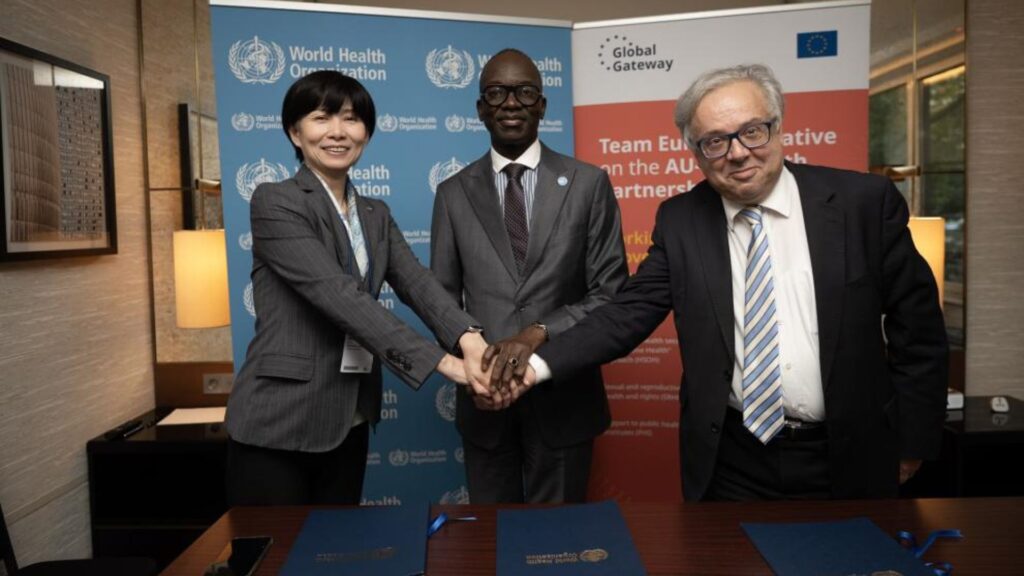The World Health Organization (WHO) and the European Union (EU) announced on October 14 an agreement to support the digital transformation of health systems in sub-Saharan Africa, centered on the expanded adoption of the Global Digital Health Certification Network (GDHCN).
The agreement was unveiled at the World Health Summit 2025 by senior officials, including Dr. Yukiko Nakatani (WHO Assistant Director-General), Dr. Mohamed Yakub Janabi (WHO Regional Director for Africa), and Martin Seychell (Deputy Director-General, European Commission).
Under the new deal, the EU will provide a €8 million grant over 2025–2028, enabling the WHO, in collaboration with regional partners such as the Africa CDC, to support national efforts in building interoperable, secure digital health systems. These systems would include verified digital health credentials that can be trusted across borders, aligning with the WHO’s vision for global health preparedness and more resilient public health systems.

The GDHCN is a global trust network that enables participating countries to securely authenticate and share digital health certificates and documents (such as vaccination or test credentials), without the WHO handling individual data. It builds on lessons from the European Union Digital COVID Certificate (EU DCC), which during the pandemic enabled cross-border verification of vaccination and test statuses among more than 76 countries and territories. Only a few African nations—Benin, Cabo Verde, Seychelles, and Togo—had connected to the EU DCC network.
The GDHCN’s infrastructure uses open, interoperable standards for privacy and data protection. Countries participating in it maintain control of their citizens’ health data, and the WHO acts as a “trust anchor” to facilitate mutual verification among states.
The World Health Organization defines digital health as the cost-effective and secure use of information and communication technologies (ICTs) to improve health outcomes. This includes tools such as eHealth, telemedicine, mobile health (mHealth), electronic health records, and digital learning.
To guide digital transformation in the region, the WHO Regional Committee for Africa adopted key resolutions in 2021 and 2023 promoting the development and implementation of national eHealth policies aligned with the Global Digital Health Strategy (GSDH). By the end of 2023, 38 African Member States — approximately 81% of the region — had developed national digital health strategies, reflecting a growing political will to harness digital tools for strengthening their health systems.
However, the WHO reveals that challenges remain. Many countries still face fragmented digital systems, limited funding, weak ICT infrastructure, and shortages of digital health skills among healthcare professionals. The new EU–WHO agreement aims to address some of these gaps by building stronger governance, legal, and technical foundations for interoperable, secure, and people-centered digital health systems across sub-Saharan Africa.
If well implemented, the WHO–EU agreement could catalyze digital health transformation across Africa, reinforcing progress toward universal health coverage, stronger health security, and integrated public service delivery. According to McKinsey, expanding the use of digital health tools can enable African health systems to realize up to 15 percent efficiency gains by 2030 and reinvest the savings to improve access and outcomes.
Hikmatu Bilali



